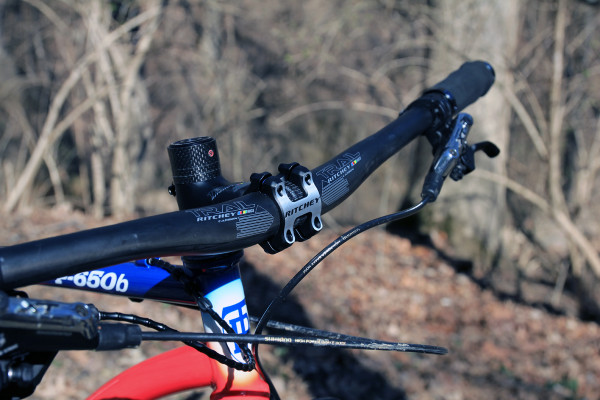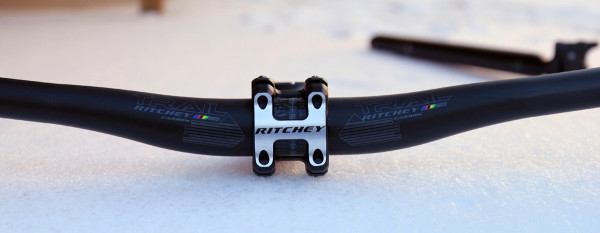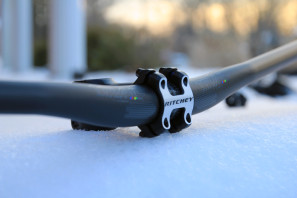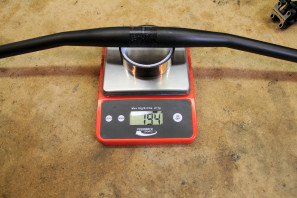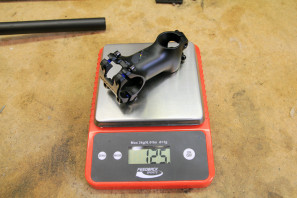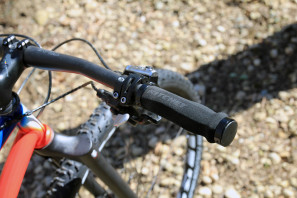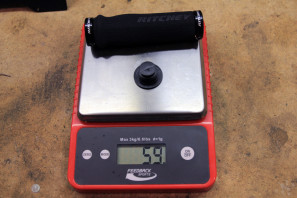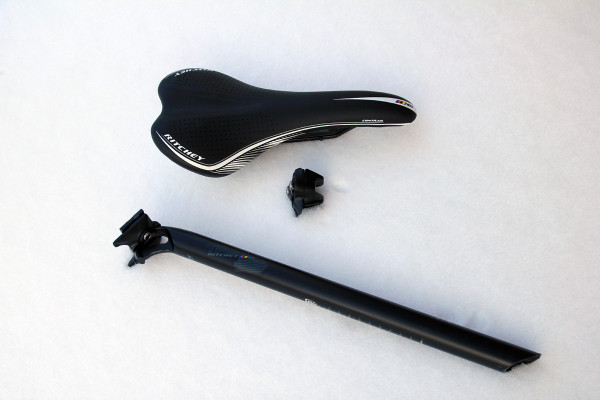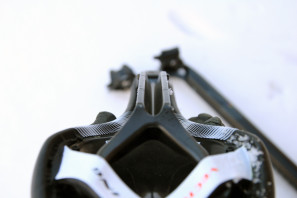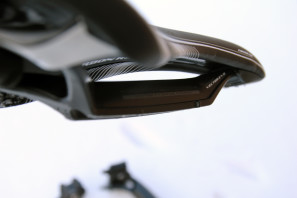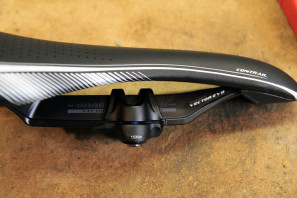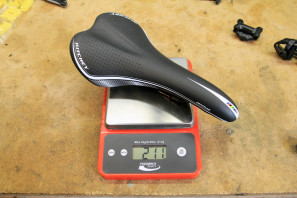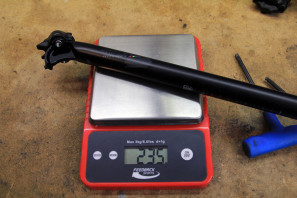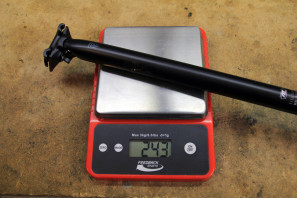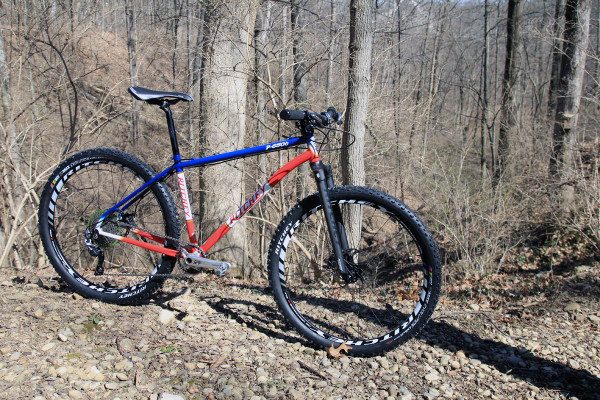With skin in the game for so long, Ritchey’s catalog is pretty deep. Short of a drivetrain and brakes you can basically build a bike from the ground up with WCS goodies. That’s exactly what we did with our P-650b build. To finish it off, we have a complete Trail cockpit kit along with Ritchey’s own take on an alternative to standard railed saddles. The Trail components turn out to be a perfect match to the more playful nature of the 650b wheels, but are still light enough to call this an XC machine.
Weights, details, and I-Beam alternatives after the jump…
Ritchey has made handlebars and stems forever, but as mountain biking has changed so have their designs. In the WCS Carbon Trail Rizer bar Ritchey offers a modern 740mm width. As wheels get bigger and the front ends of bikes get taller, high rise bars are going out of fashion so the Trail Rizer sticks with a modest 15mm rise. Built from UD carbon fiber, Ritchey states the bar has been beefed up slightly compared to their XC models, which are also quite a bit narrower.
Marketed as the first Ritchey stem designed specifically for longer travel trail bikes running wide bars, Ritchey’s WCS Trail stem is a 3D forged aluminum beauty. Going along with the modern width bars, the stems are offered in modern lengths right down to the stubby 45mm – and out to 110mm. The stem clamp makes use of Ritchey’s C220 design which is a 220 degree version of their C260. The idea being that the more wrap you have of the stem over the bar at the faceplate, means a big increase in stiffness. The 220 degree version fits more bars and is easier to install but still offers benefits over a standard clamp.
Both the stem and bar are offered in 31.8mm diameters (for now).
Even with their Trail focused design, the bar and stem prove to be impressively light at 194g for the WCS Carbon Trail Rizer ($169.95) and 125g for the WCS Trail stem ($99.95) in 70mm length.
If you like the feel of foam grips but like lock ons at the same time, you’ll love the WCS Ergo Locking True grips ($21.95). Built exactly as it sounds, the grips combine an ergo foam form with the knowledge that your grips will stay in place thanks to the dual locking collars. Thanks to the open ended design you can run them in either direction – I seem to prefer them in what I’m assuming is reversed. At 59g per grip they are roughly double the weight of the non locking version, meaning these are definitely for rider who want the foam feel but lock on security.
When it comes to seats and seat posts there are a lot of options, but not many when it comes to non-railed alternatives. For some time SDG’s I-beam has been the gold standard, but while I-beams designs offer improved strength, lower weight, and more adjustability, comfort has always been a challenge with the design. That’s because a large part of a saddle’s comfort comes from the flex of the shell, and when you have a beam on the bottom of the saddle that prevents it from flexing, the comfort has to come from padding alone. SDG has a few saddle designs to address the issue, but now Ritchey is throwing their hat in the ring with the Vector Evo Rail system. The design uses a carbon reinforced thermoplastic rail that is anchored to the saddle only at the ends – meaning it still allows the shell to flex. In addition to vertical flex, the saddle also has a bit of lateral flex to work with the pelvis while you’re pedaling. Add in the fact that you can still use a traditional saddle bag as well, and you have a very interesting take on it.
Seat posts like the WCS Carbon Trail include a standard offset clamp for rails (though it does have a reversible clamp for 10mm fore/aft adjustment), but if you want to run the Vector Evo rail you don’t need a new post. Instead the saddle includes a new clamp which replaces the standard clamp. Both clamps are a twin bolt design, with a 5mm allen side by side. The WCS Carbon Trail post ($219.95) is available in 27.2, 30.9, and 31.6 diameters and uses a monocoque design with a 400mm length.
In this case I’ll be testing the WCS Vector Evo Contrail saddle ($149.95) which is a bit more shapely than the flatter Evo Streem. The saddle measures 280mm long by 142mm wide and is available in black or white with a microfiber cover over light weight foam padding. On the scale you have 211g for the saddle, 235g for the Trail post with the Evo Rail clamp, and 243g for the standard rail clamp. So not only are the saddles lighter, but the posts are lighter as well.
That’s it for the Ritchey parts for the P-650b build – the left over slots were mostly filled with Shimano XT. Currently it sits around 22 pounds which isn’t too bad for a steel hard tail with an XT build. We’ll check back in after its seen some serious trail time and maybe a short track race or two (I can’t ride a fat bike every time, right?).
